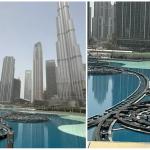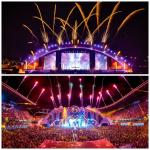Dubai is a city that thrives on superlatives—the tallest building, the biggest mall, the largest choreographed fountain. Yet, beneath the polished surface of its record-breaking architecture and luxurious lifestyle lies a city with a rich, surprising history and a culture built on innovation. For all its global fame, there are many facts about Dubai that remain largely unknown to the rest of the world.
From its humble beginnings as a small trading post to its rapid ascent as a global hub, Dubai's story is one of vision and ambition. It's a place where ancient traditions coexist with cutting-edge technology, and where the impossible is not a challenge, but a goal.
Here are 10 lesser-known facts about Dubai that will give you a new perspective on this extraordinary city.
1. The Economy Was Built on Pearls, Not Oil
While the discovery of oil in the 1960s was a catalyst for Dubai's modern development, the city's prosperity was not founded on it. For centuries, Dubai was a modest fishing and pearl-diving village. The pearl industry was the backbone of its economy, and its traders were renowned across the region. Even today, oil contributes less than 1% to Dubai's GDP, with the vast majority of its revenue coming from a diversified economy focused on trade, logistics, finance, and tourism.
2. A Demographic Anomaly
Dubai is a true melting pot of cultures, but the numbers are staggering. Over 88% of the United Arab Emirates' population consists of expatriates. This means that a tiny fraction of the people living in Dubai are Emirati nationals. The city’s vibrant, multicultural fabric is a direct result of this demographic reality, with over 200 nationalities living and working side-by-side, creating a unique global community.
3. The City's Sky-High Secret
The Burj Khalifa is so tall that those living on its highest floors experience a different sunset than those on the ground. Because the sun sets later at higher altitudes, residents on the upper levels of the world's tallest building have to wait an additional two to three minutes before they can break their fast during the holy month of Ramadan. It’s a fascinating, mind-bending fact that highlights the sheer scale of the skyscraper.
4. There is No Postal Code System
In a city known for its advanced infrastructure, one simple detail is surprisingly absent: a postal code or zip code system. Instead, Dubai relies on a more traditional, and sometimes confusing, method. To receive mail, you must use a P.O. Box. For deliveries, you often provide a detailed description of your location, including landmarks or the name of the building, which drivers use to navigate. It's a curious anachronism in an otherwise hyper-modern city.
5. The Dubai Police Have the World’s Fastest Patrol Cars
Forget standard-issue police cruisers. The Dubai Police Force has an entire fleet of supercars that would make any gearhead's jaw drop. Their patrol vehicles include a Bugatti Veyron, a Lamborghini Aventador, a Ferrari FF, and an Aston Martin One-77, among others. While they are more of a public relations tool than for high-speed pursuits, these cars are a symbol of the city’s extravagance and a major tourist attraction in themselves.
6. The “Crane Capital of the World”
During the city’s explosive construction boom in the mid-2000s, it was estimated that 25% of the world's construction cranes were operating in Dubai. The city’s skyline, once a handful of buildings, transformed seemingly overnight into a dense forest of skyscrapers. This fact highlights the sheer scale and speed of its development, as Dubai raced to build the infrastructure needed to become a global metropolis.
7. Robot Jockeys Race Camels
Camel racing is a cherished traditional sport in the UAE, but it has evolved to be a truly futuristic spectacle. To prevent the use of child jockeys, which was a serious ethical issue in the past, human riders have been replaced by small, lightweight robots. These remote-controlled robots, often wearing miniature jockey silks, are a common sight at camel races, blending ancient culture with modern technology in a uniquely Dubai fashion.
8. Strict Laws with a Modern Twist
Dubai has a reputation for being strict, but many of its laws are based on a respect for culture and tradition. Public displays of affection, such as kissing, are prohibited, and public intoxication is a criminal offense. However, recent reforms have relaxed rules regarding alcohol consumption and cohabitation for unmarried couples, reflecting a push towards greater openness and a more modern lifestyle for both residents and visitors.
9. The World's First 3D-Printed Office
True to its futuristic vision, Dubai is a world leader in 3D printing for construction. In 2016, it unveiled the "Office of the Future," the world's first fully functional 3D-printed office building. The city has set an ambitious goal to have 25% of all its buildings 3D printed by 2030, a move that aims to reduce costs, save time, and boost sustainability in the construction sector.
10. The Weekend Was on Friday and Saturday
For many years, Dubai’s official weekend was Friday and Saturday, a traditional schedule in many Muslim countries. However, in 2022, the UAE government changed the official weekend to Saturday and Sunday, with a half-day of work on Friday, to better align with global financial and trade markets. The move was another example of the city’s adaptability and its unwavering commitment to remaining a global leader in business and commerce.










